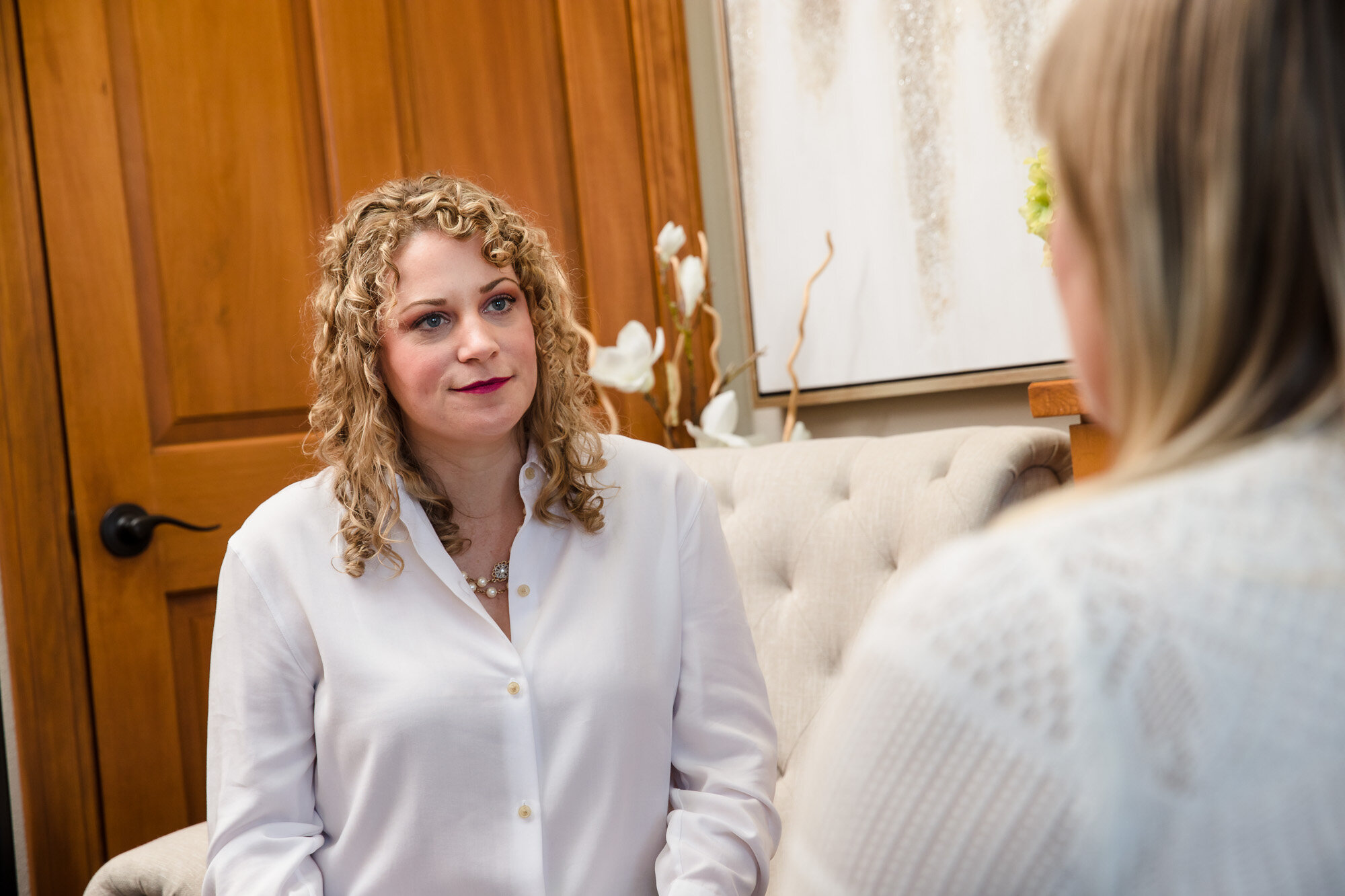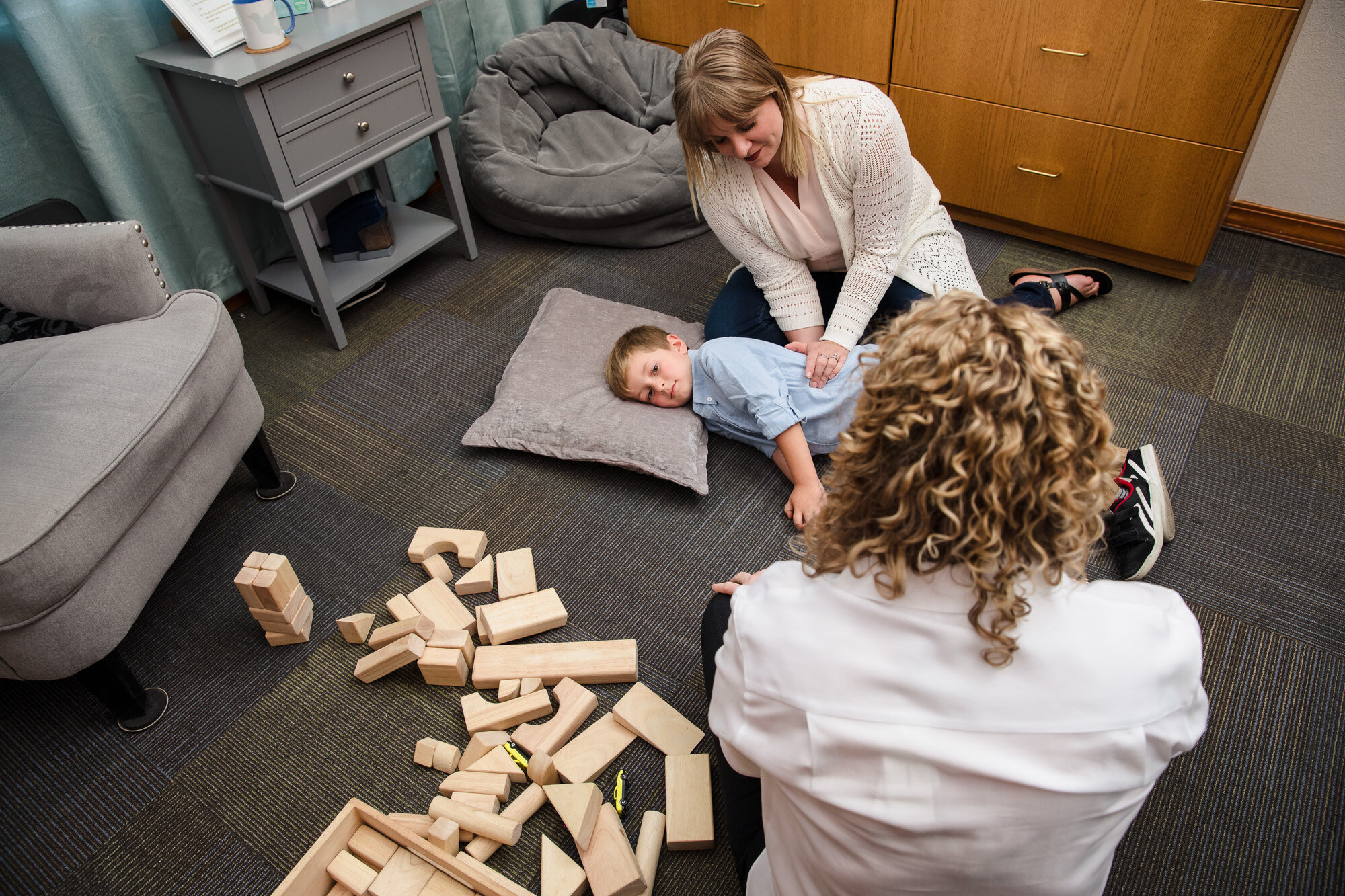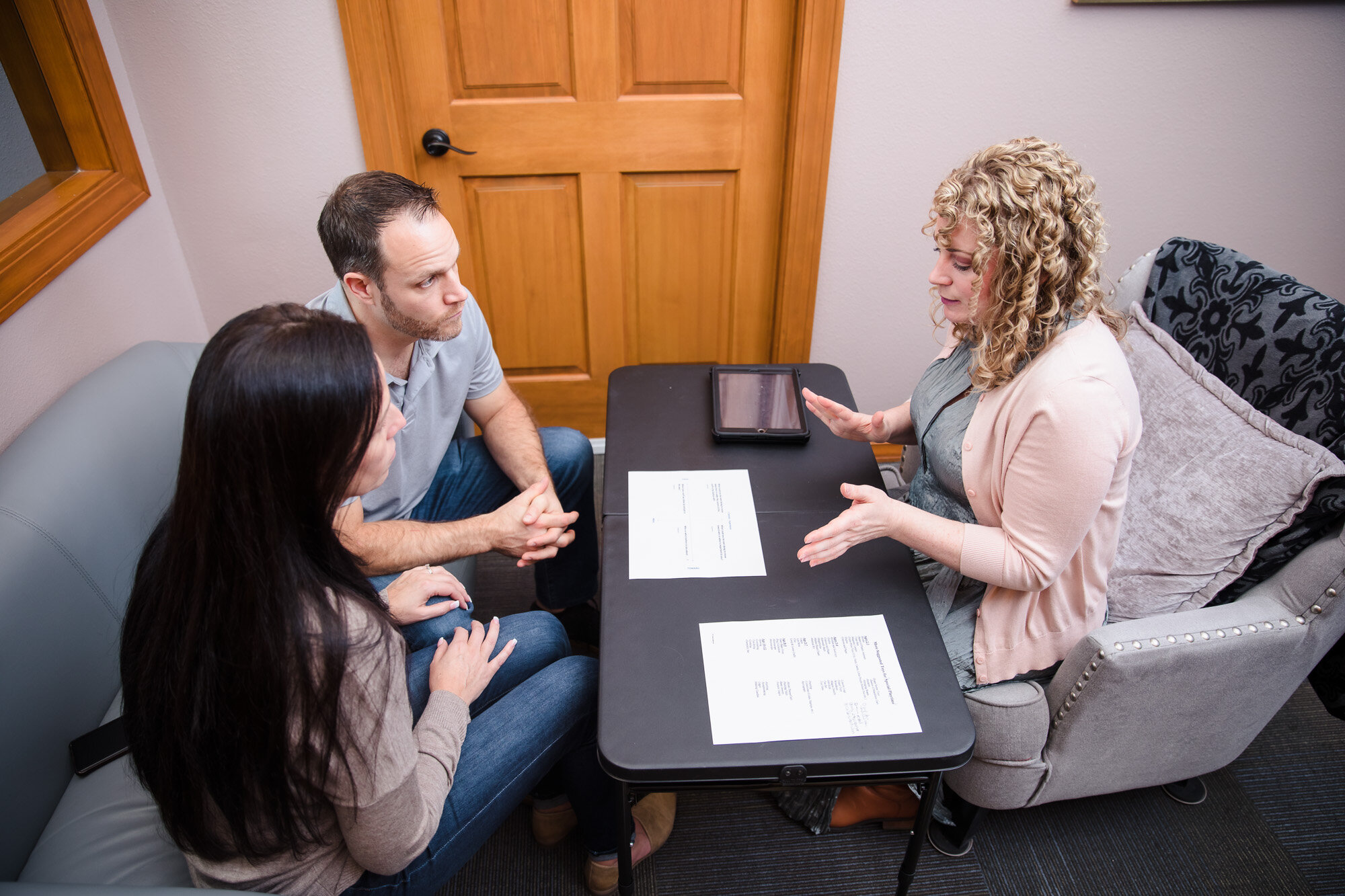In this learning video, Dr. Blevins discusses how parents can support their learners to complete less preferred or more difficult tasks easier by arranging them to occur just before tasks the learner is likely to complete. Do Harder/Less Preferred Tasks, then do easier/More Preferred Tasks. A big take away of this video is that during this difficult time, parents should give themselves self-compassion with creating an academic schedule that works for their family. Not everyone will be able to do what their schools asks of them, and that's okay. Find what works for you and your child. Hopefully small organizational and prevention strategies will help you all to get through this trying time easier. Squirrel Cat is heard in the video hunting for treats in her puzzle box.
Read MoreHow Telehealth Therapy Can Support You & Your Child During COVID-19 Pandemic
Learn how telehealth therapy is set up, specifically for therapy with parents and young children. Learn how Dr. Blevins thinks about approaching parent training and engaging children in telehealth, managing safety, and keeping care to provide medically necessary treatment.
Read MoreThe Importance of Getting Outside During Isolation
Exercise is a well researched method to improve your mood and your physical health. During these stressful times we still have the option to go outside. Whether you want to do something active like running or hiking, or sit in the sun and take a leisurely walk, time outside can promote health and help you feel better.
Read MoreManage Child Behavior Through Organization, Especially When Stuck at Home
Many families are doing their part to prevent the spread of COVID-19 by staying home. With kids across the US out of school for the next several weeks, I'm chatting with parents about how to minimize boredom, restlessness, and cabin fever. The strategies discussed in this video include: using the space in your home to prevent whining during academic time, reducing child interruptions during parent work time, using parent-child play time to reduce child misbehavior, managing sibling misbehavior, and using toys strategically.
Read MoreIs Reinforcement Bribery?
When you give your child reinforcement for completing a hard task or tolerating a new, higher difficulty situation is that really just bribery?? Parents want their children to be intrinsically motivated and values-centered in their choices to do "the right thing." But, how do you teach that? Dr. Blevins chats through the differences between reinforcement and bribery with children, and how a parent might consider these concepts when intentionally interacting with their child.
Read MoreGrowing as a Parent Advocate for Your Child
When a child is diagnosed with a developmental or mental health disorder, many parents start their own journey of becoming a new, tougher parent. It involves grief, self-compassion, finding your tribe and your voice, and becoming your child's advocate. I'm chatting today with my friend Amanda who is a mother of two children on the Autism spectrum. She eloquently shares her journey from novice to pro in developing her advocacy skills for her children in the school system. I know from working with families that Amanda's journey will parallel many other's paths. Her lessons learned may be helpful to some as they are sorting out skills they need or finding courage to be bold.
A few tidbits from this video:
1. The arc of Amanda's path was to first find her voice, then learn her legal rights as well as her child's legal rights, and now she is currently working on supporting her opinion with data when she talks with the school. 2. She uses targeted parent support groups online to find her tribe where she feels heard and can gain new ideas to help her children. She identifies this as her most valuable resource in supporting her children. 3. She discusses the signs of autism she saw in her own children in early infancy and childhood. 4. She discusses how she had to push to get an evaluation for her first child when no one else shared her concerns, and how this experience made her feel and led to a delay in diagnosis. 5. She shares how she learned about Washington state law to empower herself to share her opinion with her children's schools. 6. She shares how she pushes now for the school to collect data to support continued interventions in her child's ASD areas of concerns, like elopement and anxiety, and how she helps them to identify appropriate interventions based on the data.
Read MorePreventing Tantrums
I'm discussing the prevention of tantrums in young kids thru the use of language building. I'll specifically hit on Functional Communication Training, or teaching your child to use language to get their needs met instead of using the tantrum behavior. This is a preventive strategy designed to help the kid see language as an easier and more effective means to getting what they want than tantruming.
Remember that all Enilda Clinic learning videos are just for educational purposes. If you have a specific concern, ask your child's pediatrician about how to proceed or seek specialized support by establishing services with a specialized provider. Enilda Clinic is home to Dr. Leslie Blevins, a licensed psychologist and BCBA-D in Spokane Wa serving children and parents. Learn more at EnildaClinic.com or call at 509-844-0002. We're located at 705 W 7th Ave, Ste D, Spokane, WA 99204.
Read MoreParenting and Video Games
I chat with many parents who are concerned about their child's use of video games. In today's learning video I discuss what signs to look out for that may indicate you want to change things up at home related to video games, a framework for thinking about video games in the context of other life activities, and whether video games can be thought of as addictive.
Read MoreParenting with Consistency
Dr. Blevins discusses consistency when implementing feedback from a parent-teacher conference.
Read MoreWhat is PCIT? A Young Child Therapy
Dr. Blevins describes Parent-Child Interaction Therapy, which is a therapy used with young children and their parents to address numerous behavioral and mood difficulties as well as parent-child attachment. Learn more about Dr. Blevins child psychology practice, including assessment and therapy, at EnildaClinic.com. Enilda Clinic is located at 705 W 7th Ave, Ste.
Read MoreSleep Routines for Kids
Help your child have a great sleep routine that improves sleep onset, restfulness, and attachment with you! Learn more about child psychology, child therapy, and child behavior at EnildaClinic.com
Read MoreWhy It Is Important to Talk to Your Baby!
Dr. Blevins discusses how your everyday talk increases your baby, toddler, and preschooler's understanding of cause-and-effect and helps them build emotional awareness. Learn more about child development and behavior at EnildaClinic.com.
Read MoreDeep Belly Breathing to Relax and Manage Anxiety
Dr. Blevins discusses the purpose of deep belly breathing and shows you an exercise to learn how to do deep belly breathing. Learn more about Dr. Blevins' child psychology, behavior, and assessment practice in Spokane, Washington at EnildaClinic.com.
Read MoreYoung Child Therapy or Counseling: The Why's and Benefits
Dr. Blevins discusses how therapy is done with young children (2 through 7 years old) and the benefits of helping children with noncompliance, irritability, anxiety, and other difficult behaviors though specialized behavior management services. Learn more about Dr. Blevins' child behavior and parent support services at EnildaClinic.com
Read MoreHelp Your Kid to Put on Their Shoes
Let's talk about getting your kid's shoes on and getting out the door! We're using a rapid praising technique in this video to motivate your child to follow through with a command. Learn more about Dr. Blevins' child behavior specialty practice and parent supports at EnildaClinic.com.
Read MoreTeach Your Child a Routine While Feeling Good!
Parents can use praise to build up a routine, model steps in routines, and teach their children cues to start a routine independently. Help yourself and your little one have a great, relaxing day! Learn more about Dr. Blevins at EnildaClinic.com.
Read MoreHelp Your Child Transition Home from School in the Afternoon
Dr. Leslie Blevins, in Spokane Washington, explains a values-centered approach for parents to help their children transition in the afternoon from school to home. This helps build attachment, reduce irritability, and improve homework and evening routine engagement. Dr. Blevins completes psychoeducational assessment with children and teens, and works with young children and their parents in therapy.
Read MorePraising the Opposite of an Inappropriate Behavior - Teaching Children
Dr. Blevins discusses praising as a tool to teach children values as well as to curtail "bad" behaviors. This is one video in a series on praising. To learn more about Dr. Blevins and her child psychology and parent support practice in Spokane, Washington, go to EnildaClinic.com.
Read More





